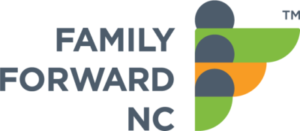Family Forward Missoula is an innovative initiative to improve children’s well-being and keep Missoula’s businesses competitive. It is employer-led change to increase access to research-based, family-friendly practices — big and small — that improve workplace productivity, recruitment and retention; grow a strong economy; and support children’s healthy development.
Family-friendly workplaces have a competitive advantage: They attract and retain more top talent, and their employees are more productive and more committed. Plus, family-friendly employers benefit from reduced employee health care costs, a healthier work environment, and fewer employee absences.
Employers of all sizes across Missoula see family-friendly practices as an effective way to grow a more prosperous company, and employees nationally say they are more likely to work for employers who are family friendly.
To prepare our future workforce for success, we have to start in early childhood. Family Forward Missoula’s focus on workplace policies that impact young children and their families is rooted in research on brain development and future success. During children’s earliest years, their experiences are built into their bodies—shaping the brain’s architecture and creating the foundation for future learning and health. In other words, everything a child experiences from birth impacts that child’s ability to fulfill his or her potential.
The early years are so defining that by the time a child turns eight, his or her third-grade reading outcomes can predict future academic achievement and career success. Decades of research have established what children need to build strong brains—health and development on track from birth, supportive and supported families and communities, and high-quality birth-through-age eight learning environments with regular attendance.
Family Forward Policies
What Makes a Workplace Policy Family Forward?
Each policy recommended in this guide has a research base that shows positive business impact for employers and a positive impact on children’s health and well-being.
Each policy is described in detail throughout this section. Benefits to employers and to employee and child health and well-being are highlighted, along with examples of how employers have incorporated these practices into their workplace.
Paid Leave
For the purposes of this guide, we focus on paid leave only, as paid leave has more positive impacts on employers and employees versus unpaid leave. Types of leave included are parental leave (for birth, adoption or foster placement), sick and safe leave, and family and medical leave.
Flexible Work and Scheduling
Flexible work includes flextime, working from home or telecommuting, job sharing, part-time work, and predictable scheduling.
Working from Home/Telecommuting →
Job Sharing and/or Part-Time Work →
Child Care
Child care solutions include backup and emergency care, child care referrals, on-site child care, child care consortiums, and subsidized or reimbursed care.
Backup or Emergency Childcare →
On-Site or Consortium Sponsored Childcare →
Subsidized/Reimbursed Childcare →
Health Benefits and Flexible Spending Accounts
Health insurance, wellness benefits, and flexible spending accounts are featured here.
Health and Wellness Benefits →
Employee Assistance Programs →
Accommodations and Support
This category includes support for pregnant and breastfeeding mothers and babies at work initiatives.
